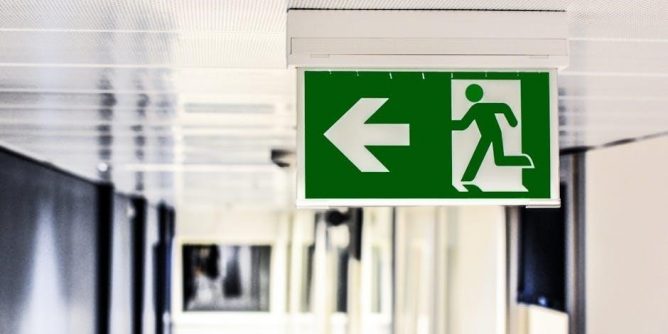
A Notary Public serves as an impartial witness, ensuring the authenticity and legality of document signings. Their role prevents fraud, providing a secure process for legal and business transactions.
What is a Notary Public?
A Notary Public is a state-commissioned official who serves as an impartial witness to the signing of documents, verifying identities and ensuring signers understand the document’s contents. They act as a public officer, upholding trust and preventing fraud by confirming the authenticity of signatures and documents. Their role is essential for legal and business transactions, ensuring compliance with laws and maintaining the integrity of the process. Notaries are authorized to administer oaths, witness signings, and authenticate documents for domestic or international use.
The Role and Responsibilities of a Notary
A Notary Public’s primary role is to verify identities, witness document signings, and ensure all parties understand the content. They prevent fraud by confirming the authenticity of signatures and documents. Notaries must maintain a journal to record transactions, handle documents securely, and adhere to state-specific laws. They also manage remote notarizations and ensure ethical practices, avoiding conflicts of interest. Their responsibilities include staying updated on legal requirements and upholding public trust, ensuring transparency and integrity in every transaction.
Becoming a Notary Public
Becoming a Notary Public involves meeting state-specific requirements, completing education and training, passing a background check, and obtaining certification. It ensures you can legally witness document signings, handle remote notarizations, and maintain ethical standards. The process varies by state, so research your local requirements to apply successfully and start your Notary practice.
Step-by-Step Process to Become a Notary
To become a Notary Public, start by meeting state-specific eligibility criteria, which typically includes being at least 18 years old and passing a background check. Complete any required education or training, often involving a course and exam to ensure understanding of legal responsibilities; Submit your application and fee to the state, including fingerprints if necessary. Once approved, take an oath and obtain your commission. Purchase a Notary stamp and journal, as mandated by your state, to officially begin providing Notary services. The entire process ensures you are properly certified to witness document signings legally and ethically.
Education and Training Requirements
Becoming a Notary Public requires completing a state-approved education program, which covers legal principles, ethical practices, and procedural guidelines. Most states mandate a training course and exam to ensure understanding of notarization laws and responsibilities. These programs are designed to equip Notaries with the knowledge needed to perform their duties accurately and ethically. Additional continuing education courses may be required to maintain certification and stay updated on legal changes. Proper training ensures Notaries can effectively prevent fraud and uphold the integrity of document signings.
Background Checks and Certification
A background check is often required to ensure a Notary Public’s trustworthiness and integrity. This process typically involves reviewing criminal history to prevent individuals with serious offenses from becoming Notaries. Certification follows completion of state-approved education and training, often requiring a passing score on an exam. The certification process ensures Notaries understand their legal responsibilities and can perform duties ethically and accurately. This step is crucial for maintaining public trust and upholding the integrity of notarization processes.

Notary Tools and Equipment
Notaries rely on essential tools like stamps, seals, journals, and electronic devices to perform duties efficiently. These tools ensure document authenticity and proper record-keeping for legal procedures.
Essential Supplies for Notaries
A notary must have a few key supplies to perform their duties effectively. These include a notary journal for recording transactions, a notary stamp or seal to authenticate documents, and an ink pad for stamping. Additionally, many notaries use a calculator for verifying fees and a secure storage container to protect sensitive materials. These tools help ensure compliance with legal requirements and maintain the integrity of notarized documents. Proper supplies are crucial for preventing fraud and upholding professional standards.
How to Use a Notary Stamp and Seal
To use a notary stamp and seal, place the stamp near the signature area on the document, ensuring it is clear and legible. The seal is typically applied on the same page, often adjacent to the stamp. Clean the stamp and seal regularly to maintain sharp impressions. Always follow state-specific guidelines for placement and design. Proper use ensures document authenticity and compliance with legal requirements, preventing potential issues in official proceedings.

Performing Notarizations
Notarizations involve verifying identities, ensuring signers understand documents, and completing the process according to legal standards. The notary’s role is crucial for validating the authenticity of signatures and agreements.
Best Practices for Conducting a Notarization
Ensure all signers are present and provide valid government-issued IDs. Verify their understanding of the document and confirm they are signing voluntarily. Maintain a neutral role to avoid conflicts of interest. Use your notary stamp and seal correctly, and record details in your journal. For remote notarizations, ensure secure technology is used. Always follow state-specific laws and ethical guidelines to prevent fraud and liability. Proper documentation and transparency are key to a valid and lawful notarization process.
Handling Documents and Signatures
Ensure all documents are complete and signed in your presence. Verify the identity of signers using valid government-issued ID and confirm their willingness to sign. Check for blank spaces to prevent alterations. For electronic documents, use secure digital tools to apply signatures and notarizations. Maintain the integrity of the document by avoiding any alterations post-signing. Ensure signatures align with state-specific requirements and securely store the final documents to prevent tampering or unauthorized access.
Special Cases: Remote Notarizations
Remote notarizations allow documents to be signed and notarized electronically, often using video conferencing and digital tools. Ensure real-time interaction with signers, verify identities through secure methods, and maintain detailed records. Use state-approved electronic notarization platforms to apply digital signatures and seals. Adhere to specific technical requirements for audio-visual clarity and data security. This method is particularly useful for individuals unable to meet in person, offering convenience while maintaining legal integrity and compliance with regulations.

Maintaining a Notary Journal
A Notary Journal records all notarizations, ensuring accountability and preventing fraud. It documents details like signatures, dates, and document types, aiding in legal compliance and audits.
Why Keep a Notary Journal?
Maintaining a Notary Journal is crucial for accountability, as it provides a detailed record of all notarizations. It helps prevent fraud by documenting each transaction, including signatures and dates. The journal serves as legal evidence in disputes or audits, protecting both the Notary and parties involved. Most states require or strongly recommend keeping a journal to ensure transparency and compliance with laws. It also aids in tracking potential errors and demonstrates the Notary’s commitment to ethical practices and integrity in their duties.
What to Record in Your Journal
Your Notary Journal should include detailed entries for each notarization, such as the document type, names and signatures of signers, dates, times, and types of identification used. Note the specific notarial act performed, fees charged, and any unusual circumstances. Recording these details ensures accountability, prevents fraud, and provides a clear audit trail. This practice protects both the Notary and the parties involved, maintaining transparency and compliance with legal requirements. Accurate records are essential for resolving disputes and demonstrating professionalism.
How Long to Keep Your Journal
Notaries must retain their journals for the duration of their commission and, in many cases, for several years after. State laws vary, but most require journals to be kept for at least 6-10 years post-commission. Some states mandate permanent retention. Proper storage ensures compliance with legal requirements and provides a reference for future disputes or audits. Failure to maintain records can result in penalties or legal consequences. Always check your state’s specific guidelines for journal retention periods.
Legal and Ethical Considerations
Notaries must adhere to strict legal and ethical standards, avoiding conflicts of interest and fraud. Failure to comply can result in civil liability or criminal charges.
Understanding State-Specific Laws
Notary laws vary significantly by state, requiring notaries to understand specific regulations in their jurisdiction. For instance, in Arkansas, a notary’s county of commission is determined by residency. Understanding state-specific laws ensures compliance and prevents legal repercussions. Failure to comply can result in penalties, fines, or loss of commission. State laws also govern the authentication of documents, such as apostilles, crucial for international use. Staying informed about state-specific requirements is essential for maintaining professional integrity and avoiding legal issues. Adhering to these laws ensures document legitimacy and acceptance.
Avoiding Conflicts of Interest
Notaries must remain impartial to avoid conflicts of interest, ensuring their neutrality in all transactions. Engaging in personal gain or self-interest can compromise their ethical duties. For instance, notarizing documents for family members or when personally invested can lead to legal penalties. Always prioritize fairness and transparency to maintain public trust and uphold professional integrity. Failure to avoid conflicts can result in severe consequences, including loss of commission and legal repercussions.
Consequences of Fraudulent Acts
Engaging in fraudulent acts as a Notary Public can lead to severe legal and professional repercussions. Civil liability, criminal charges, and fines may result from unethical practices. Notaries can face revoked commissions, loss of professional credibility, and even imprisonment. Fraudulent acts undermine trust in the notary system, making it essential to adhere to ethical standards and state laws. Consequences extend beyond legal penalties, damaging one’s career and reputation irreparably.
Advanced Notary Topics
Exploring specialized areas like apostilles, international document authentication, and electronic filing. These topics address complex scenarios, ensuring notaries are equipped for modern and global transaction requirements.
Apostilles and Authentication
Apostilles and authentication certificates validate a Notary’s seal and signature, enabling documents to be recognized internationally. This process ensures legal acceptance of documents in foreign countries. The apostille is issued by state authorities, confirming the authenticity of the Notary’s stamp. It is essential for documents like birth certificates, marriage licenses, and business agreements. Notaries must follow specific guidelines to obtain apostilles, ensuring accuracy and compliance with international standards. This step is crucial for cross-border legal transactions, preventing document rejection and ensuring smooth processing abroad.
Notarizing International Documents
Notarizing international documents requires careful attention to detail to ensure compliance with foreign laws. Notaries must verify the document type, understand country-specific requirements, and ensure proper signatures and seals. Authentication often involves apostilles or certification from state authorities. Notaries should use standardized language and formats to avoid confusion. Accuracy is critical to prevent delays or rejections. Properly notarized international documents facilitate smooth transactions across borders, supporting global business and legal processes effectively.
Electronic Filing and Digital Signatures
Electronic filing and digital signatures streamline notarization processes, enabling efficient document submission and verification. Notaries can use digital tools to apply secure, legally binding signatures, reducing physical storage needs. Systems like the Electronic Filing System (CM/ECF) allow for seamless document management. Digital signatures ensure authenticity and compliance with state-specific laws, enhancing security and efficiency in modern transactions. Proper training is essential to navigate these technologies effectively and maintain the integrity of notarized documents in digital formats.

Professional Development
Continuous learning and adaptation to evolving laws and technologies are crucial for notaries. Building a successful business involves effective marketing, client relationships, and staying updated on industry trends.
Ongoing Education for Notaries
Ongoing education is vital for notaries to stay updated on laws, best practices, and new technologies. Many states require continuing education for recertification, ensuring notaries remain competent and informed. Topics often include state-specific laws, ethical practices, and advancements in electronic notarizations. Professional resources like NotaryCoach.com offer training to enhance skills and adapt to industry changes. Continuous learning helps notaries maintain professionalism, avoid legal issues, and provide reliable services in an evolving legal landscape.
Building a Successful Notary Business
Building a successful notary business requires a combination of skills, marketing, and customer service. Notaries can enhance their visibility by listing on professional directories like Gotary.com, which connects clients with trusted notaries. Investing in quality tools and staying updated on industry trends is crucial. Effective marketing strategies, such as online presence and community engagement, help attract clients. Providing exceptional service ensures repeat business and referrals, fostering long-term success in the notary industry.